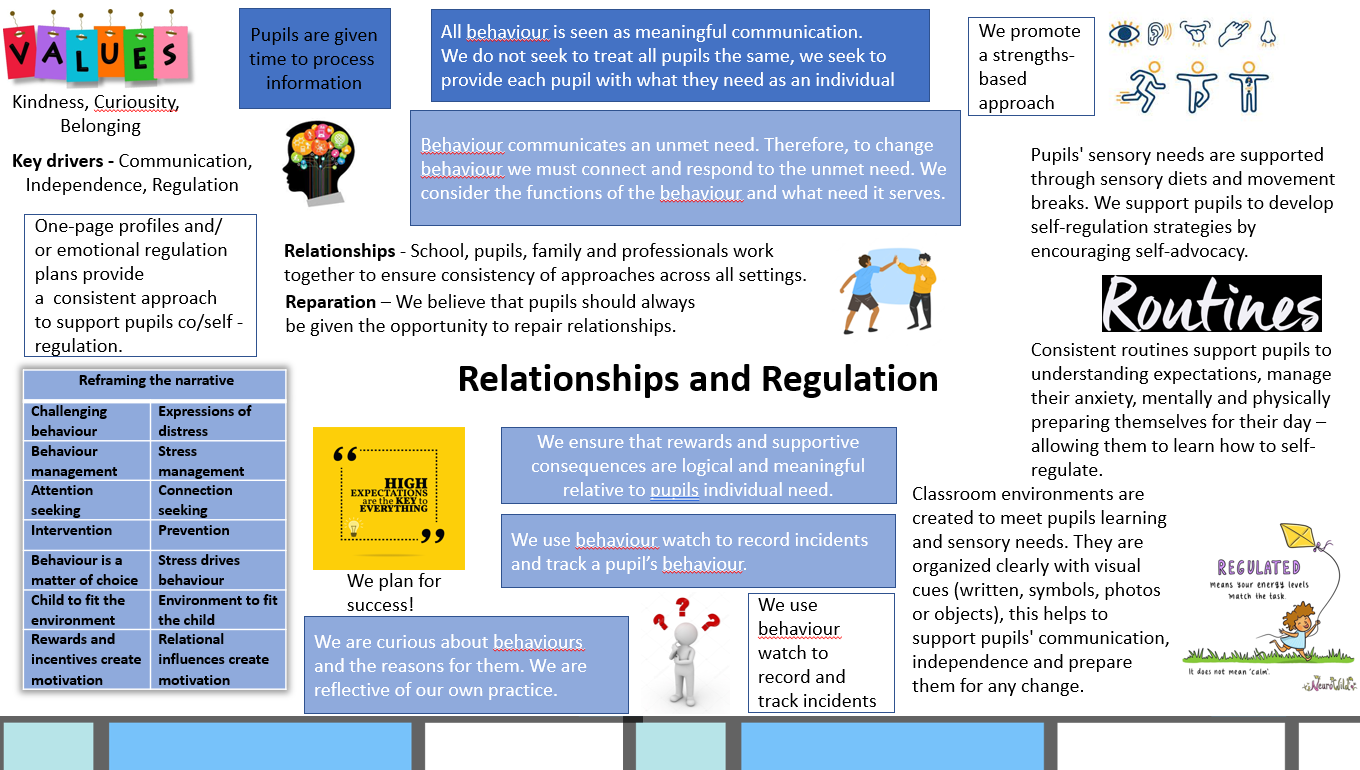Our approach to supporting pupils to regulate
At Billing Brook School, we believe that every child is unique and brings their own strengths and challenges to our learning community.
Here’s how we approach behavior and neurodiversity:
-
Listening and Observing: We pay close attention to a child’s behavior. Instead of labeling it as ‘good’ or ‘bad,’ we see it as a form of communication. What is the child trying to express? Are they feeling overwhelmed, excited, or seeking sensory input? By listening and observing, we gain valuable insights.
-
Celebrating Neurodiversity: Our school celebrates neurodiversity—the idea that differences in brain function are natural and valuable. Whether your child is autistic, has ADHD, or experiences other neurodivergent traits, we honor their unique way of experiencing the world.
- Individualised Support (Regulation Plans): Just as no two children are alike, no single approach fits all. We create individualised plans for each pupil, where needed, considering their specific needs, preferences, and learning styles. Our goal is to provide a supportive environment where every child can thrive.
- Empathy and Compassion: We recognise that parents know their child best. We encourage open communication and collaboration. We encourage parents to share their insights with us, and together, we find strategies that work.
- Building Self-Advocacy: We empower pupils to understand themselves better. As they grow, we teach self-advocacy skills. We work hard to help pupils learn to recognise their energy levels or express their feelings, and seek the support they need.
-
Creating Inclusive Spaces: Our school is designed to be inclusive. We consider sensory needs, communication preferences, and social interactions. By adapting our environment, we ensure that all pupils feel welcome and understood.
Educational psychologist
There maybe occasions that we seek advice from our allocated EP. Should we need to do this, your permission is sought in advance and all reports shared.





